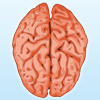
Adding to the benefits of reading habit, a study suggests that besides honing your literary skills and factual knowledge, it also acts as a tonic for the brain.
Neuroscientist Susan Greenfield suggests that reading helps to widen attention in kids. "Stories have a beginning, middle and an end - a structure that encourages our brains to think in sequence, to link cause, effect and significance," she has been quoted as saying.
"It is essential to learn this skill as a small child, while the brain has more plasticity, which is why it's so important for parents to read to their children. The more we do it, the better we get at it," Greenfield explains.
Besides, reading can enrich our relationships by increasing our understanding of other cultures and enabling us learn to empathize, says the Daily Mail reports.
"In a computer game, you might have to rescue a princess, but you don't care about her, you just want to win," explains Greenfield. "But a princess in a book has a past, present and future, she has connections and motivations. We can relate to her. We see the world through her eyes."
John Stein, emeritus professor of neuroscience at Magdalen College, Oxford, says reading is far from a passive activity. "Reading exercises the whole brain," he explains. Reading stories to children will help their brains develop the ability to analyze the cause, effect and significance of events
A 2009 brain-imaging study in the US observed that reading about landscapes, sounds, smells and tastes activates brain areas tied to these experiences in real life, creating new neural pathways. In simple terms our brains simulate real experiences that don’t become active while watching TV or playing computer games.
University of Sussex researchers during a study in 2009 study showed how six minutes of reading can slash stress levels by more than two-thirds. Hence reading is far more effective than listening to music or walking.
--with inputs from IANS
null
|
|


Comments: